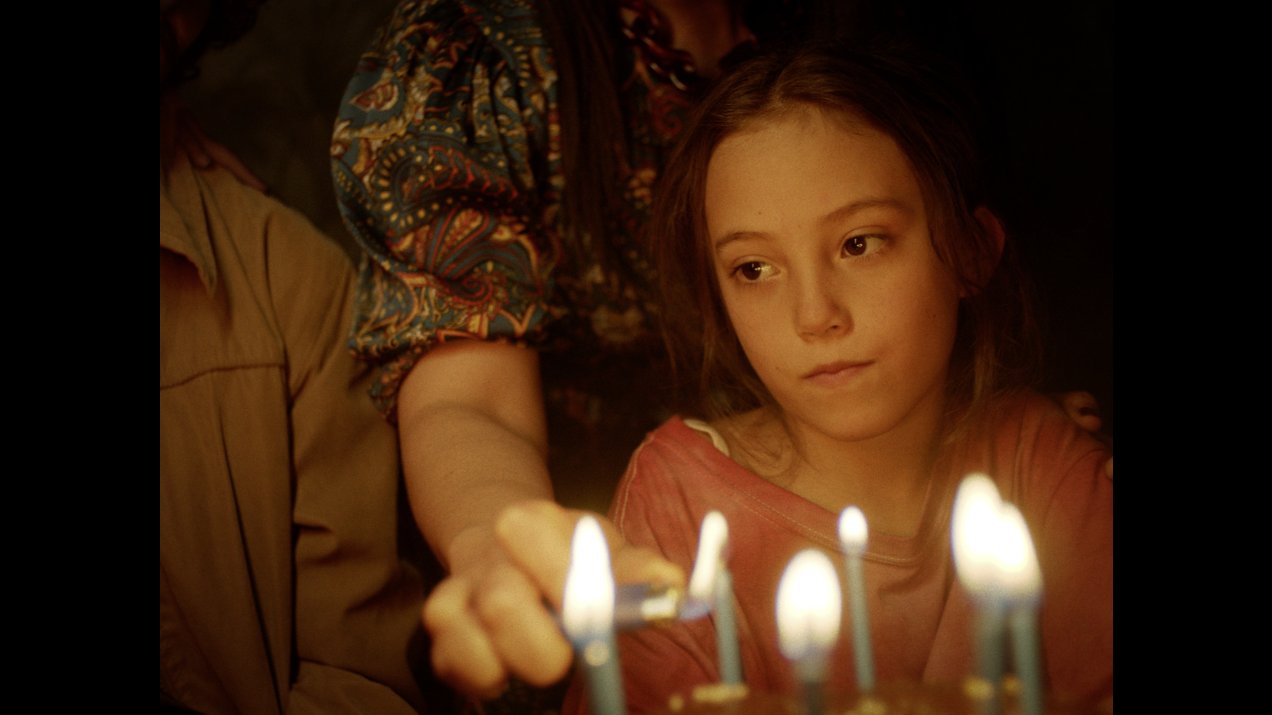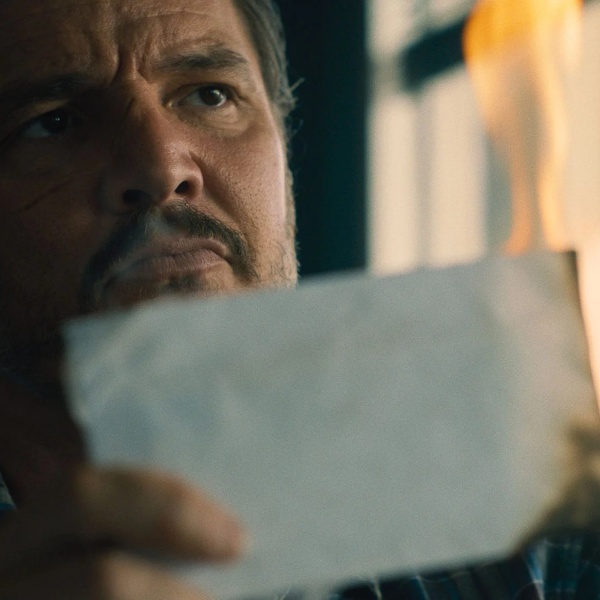
Although it might seem like male directors stand at the forefront of Mexican cinema right now — look at recent Oscar winners such as Alfonso Cuarón, Guillermo del Toro, and Alejandro González Iñárritu — it’s a new wave of female filmmakers who are actually the ones to watch.
Tatiana Huezo (“The Echo”), Fernanda Valadez (“Identifying Features”), and Issa López (“Tigers Are Not Afraid,” “True Detective: Night Country”) all shine bright, yet Lila Avilés (“The Chambermaid”) might be the first to come close to Oscar success of her own with “Tótem,” which was shortlisted at this year’s Academy Awards for Best International Feature Film. While Avilés’ acclaimed debut followed a maid working to bring structure and order to empty, uninhabited spaces, her follow-up feature is teeming with life, even if the subject matter might not lend itself to that at first glance.
“Tótem” begins with seven-year-old Sol (Naíma Sentíes) and her mother, Lucia (Lazua Larios), laughing together in a public bathroom. They’re preparing for a big birthday party, but first, Lucia has to pee in the sink because her daughter’s taking forever to go in the cubicle. It’s funny and surprising in ways that do not prepare us for what comes next; the realization that this party is actually being held for Sol’s terminally ill father, Tona (Mateo Garcia), as a goodbye for the whole family. Lucia disappears for most of the film as this unfiltered look at a family in crisis continues from the perspective of Sol, who observes the party preparations unfold, moving spontaneously from room to room with her clown wig on, ready for a big performance in the night.
Across the span of a single day, we gradually meet various members of the extended family as they put on a brave face and try to make the best of things. Sol’s Aunt Nuria (Montserrat Marañon) rather ambitiously tries to make her brother a cake from scratch while Alejandra (Marisol Gasé), Nuria’s older sister, dyes her hair and invites a spiritual healer into the house, hoping it might somehow help Tona’s illness.
Inevitably, the underlying sadness of the day impacts everyone to varying degrees, resulting in plenty of bickering between the adult siblings and elders like Roberto (Alberto Amador), who uses an electrolarynx to communicate his distaste from the sidelines. Tension also builds in the way everyone is so clearly concerned with guarding Sol against this all-pervasive sadness. Her uncle Napo (Juan Francisco Maldonado) brings Sol a pet goldfish as a gift to distract her while the others speak in tongues when issues around Tona’s condition and his treatment come up. But as the day progresses, it becomes clear that Sol knows more than everyone gives her credit for.
Just like the titular chambermaid in Avilés’s previous film, Sol is almost invisible at times, observing the world from afar, and it’s through this anonymity that the truth adults so desperately hide from children becomes apparent. Like her namesake, Sol is the focal point of this universe. It’s through her that we see the family come together and unravel and come together again, often from under a table or through a door left ajar, yet it’s also the smaller details that resonate both with her and us. The clutter speaks to a home well-lived in, a house full of love, and little distractions like a snail in a bush or her cousin Esther (Saori Gurza) playing with a cat suggest an innocence that makes the dawning realization of Tona’s fate all the more painful to bear.
All Sol wants to do is spend time with her father, but for the first half of the film, he’s too sick to see her (or anyone else for that matter, too), so seconds become minutes, and minutes stretch into hours as Sol continues to wait. “Tótem” doesn’t manipulate or revel in the potential drama of it all though. Instead, Diego Tenorio’s cinematography, as seen through Sol’s eyes, presents the day as a series of smaller moments connected through a haze of what feels like memories rather than the present, fleeting and almost intangible like lingering dust motes in the sunlight that fade as afternoon turns to dusk. Time and space don’t quite feel real here amid these gorgeous long takes, as befitting the perspective of a child whose limited yet growing understanding of the world is, of course, very different from any that Sol’s adult relatives would share.
But when Tona does appear, emerging from the shadows of his room with a nurse (Teresita Sanchez) holding him up, Avilés continues to avoid any mawkishness despite the tragedy at hand. The glimpses we see of Tona are just that, glimpses and moments that hold equal weight with everything else that happens on this one simple yet transformative day in Sol’s life.
Without a score, the aural rhythms of “Tótem” rely mainly on the conversations that float around Sol as she weaves between the legs of adults and furniture alike. By the time the party actually starts in the film’s final third, the various improvised connections we hear slowly coalesce into something far more meaningful than just background chatter with themes of cosmology, mortality, and the natural world emerging from the seeming chaos of it all. Recurring animal motifs reinforce that final point in particular, alluding to cycles of life as seen through the eyes of a curious child forced to reckon with the inevitability of death.
But it’s important to note that “Tótem” isn’t dour in its approach to loss. If anything, that party, and the film as a whole, is an exuberant, often whimsical celebration of life that brings hope still in the face of pain. There’s relief and even joy to be found in accepting the natural order of things, a bittersweet realization that comes to Sol at the end when she holds everyone’s gaze in the light of birthday candles that flicker in her eyes.
To love in the moment holds far more power than wishing for something you can never have, yet when it comes to Avilés’ work, we can’t help but do both, simultaneously adoring “Tótem” while eagerly looking ahead to what’s coming next. Except, in this case, more success for Avilés isn’t just wishful thinking. Regardless of how it fares in the American awards season, “Tótem” has now cemented Avilés as a new pioneer for Mexican cinema whose potential could one day rival or even surpass the Cuarón’s and Del Toro’s of this world.
Grade: A
“Tótem” is now playing in theaters.





